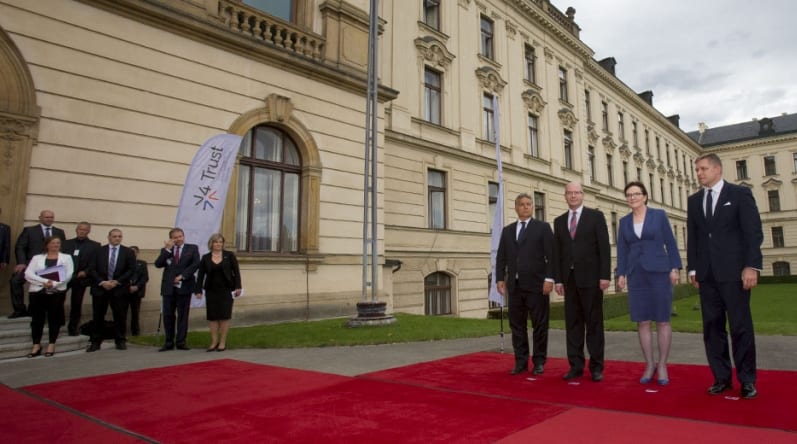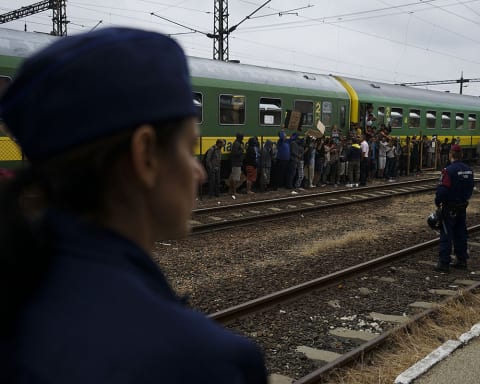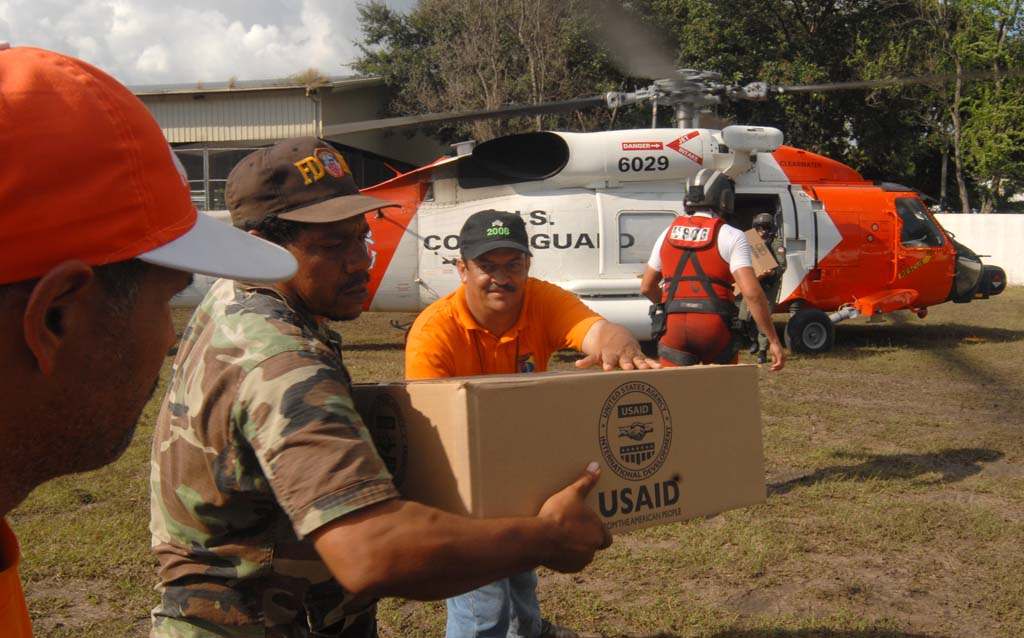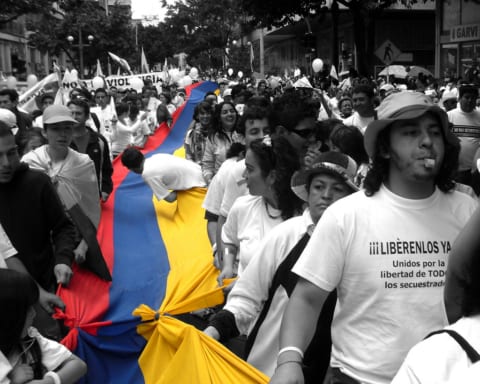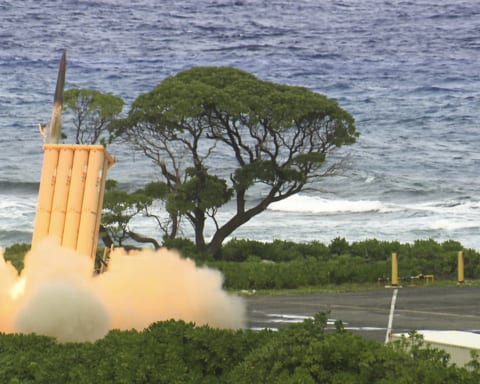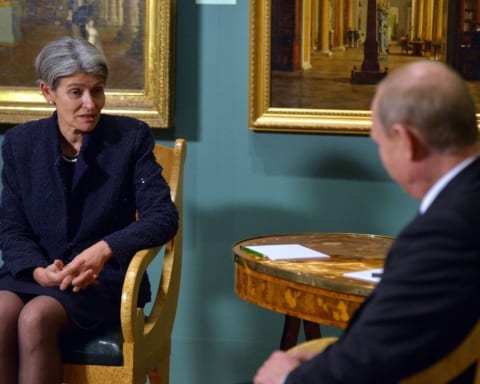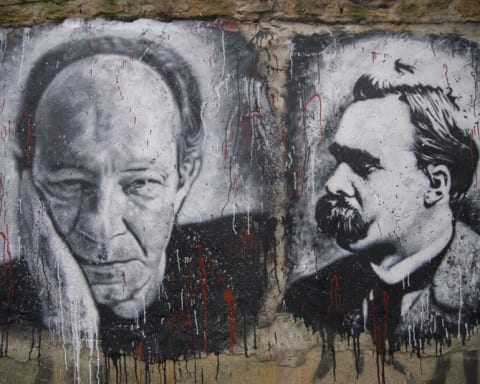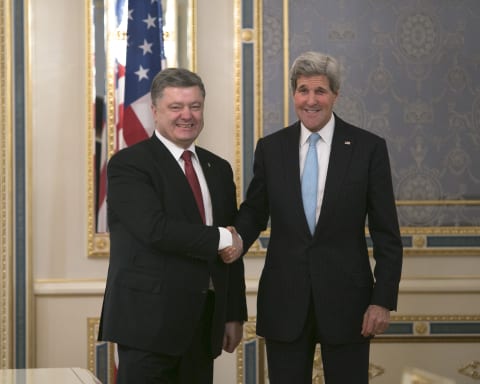The Visegrad Group (V4) made up of Poland, Slovakia, The Czech Republic and Hungary are an often overlooked bloc of Central European powers. Originally a “triangle” of Poland, Czechoslovakia and Hungary created in 1991 after the collapse of the Soviet Union, the now four members (after 1993) of the Visegrad Group have worked together with various degrees of closeness and success. Originally set with the task of developing capitalist and democratic institutions in the post-Soviet era, the largely informal meetings between the V4 countries helped achieve remarkable results for countries who had until then stagnated under the Soviet system. Following this success, it was no surprise when the raison d’être of the group shifted towards joining NATO (1999 except for Slovakia in 2004) and the EU (2004), further integrating the former Soviet countries into the larger European system. Now integrated into a well established institutional political framework, the members of the V4 no longer had much reason for the Visegrad Group. Indeed, the ethnic and linguistic differences between the Slavic Poles, Czechs, and Slovaks with the Hungarians means that little cultural unity existed beyond a shared bond of Soviet-subjugation. Then perhaps unsurprisingly it was Russia’s response to the Orange Revolution in Ukraine and the worrying trajectory of a resurgent Russia, such as the Georgian-Russian Conflict in 2008, that may have kept the drifting Visegrad Group together if only due to a doubt of the robustness of NATO. In addition, the experience of the V4 countries within the EU where they were more often than not viewed as an afterthought by the Western European powers meant that some sort of Central European unity would not be without merit if only to symbolically strengthen the region’s stature within the EU.
Indeed it seemed that up until earlier this month the prospects of a reinvigorated V4 taking center stage looked bright. The Visegrad Battle Group, led by Poland and in concert with Ukraine, appeared motivated and ready to act as a permanent unit after 2016. This Battle Group presented numerous opportunities for the V4 countries, including the ability to increase cooperation between the states and to increase their prestige in Europe by demonstrating their utility to NATO. The ability for the Battle Group to sustain itself is particularly important as it forces Poland to take a leadership role it has been growing into but long been reluctant to fully embrace in both the V4 and Europe. It also hopefully serves to align the differing perceptions of “threats” of the V4 members, in particular the view towards Russia with which Hungary has had warmer relations than the other V4 countries. The outbreak of the migrant crisis towards Europe also presented a rare opportunity for the Visegrad Group to assert itself as the members where uniformly against the proposed quotas dictated by Germany through the EU and in a rare showing were unafraid to speak up. Slovakia’s Prime Minister Robert Fico has called the quotas “irrational” and that during his term “mandatory quotas will not be implemented on Slovak territory“. Czech Prime Minister Bohuslav Sobotka called for an end to the “unproductive debate on a mandatory distribution mechanism for refugees, which is not the right solution, and instead to implement measures leading to a real solution to this crisis as fast as possible.” It appeared that an issue to stir the V4 to decisive action had arrived. On the eve of a meeting of an EU Summit on the migrant crisis in Brussels where the topic of quotas was set to take center stage, the Visegrad Group reaffirmed their common position decided earlier in Prague on September 4th and issued a joint statement outlining their combined objectives in response to the developing migrant crisis. For a group of countries that had been historically an afterthought and not considered seriously by other EU member states, this appeared to be a galvanizing moment that would hopefully finally strike life into the V4 members and strengthen the bloc.
However, during the meeting and in a stunning backtrack of statements just hours before, Warsaw voted for the proposed quotas. The fallout domestically was immediate and Polish politicians scrambled to explain their position to a population wary of foreign migrants. Internationally, the move shattered the credibility the V4 had gathered up to then as it was once again demonstrated to the other European States that the V4 could not “walk the walk” and did nothing to change the perception that the individual states had meddling influence within the EU. For Poland in particular it was once again a missed opportunity to show independent leadership and assert its growing position in Europe as it once again showed a deference to Berlin. The best justification Poland could offer was effectively a shrugging of the shoulders when Piotr Stachanczyk from the Ministry of Immigration said, “We couldn’t have blocked the [EU] Council decision even if we were four. We could have said ‘No’ and had no say in the negotiations, or we could have done what we did”. In the fallout following the voting and having lost the unifying power of Poland the other V4 members quickly took on differing paths. Hungarian Prime Minister Vikor Orban has confirmed old suspicions and signaled a move to get closer to Russia to address the migrant crisis while also resuming the bellicose war of words with Brussels and Berlin. Slovakia and the Czech Republic similarly have moved closer to Austria who also shares an opposition for the intake of Middle Eastern migrants.
While these independent moves by Hungary, Slovakia and the Czech Republic may play well to their domestic constituents in the short term it is only a paper victory. Without any real unity, of which an independent Poland is the cornerstone, the individual countries and their citizens have little hope of having their voice be more than a passing concern in the ongoing migrant crisis. On its current trajectory Hungary will continue to alienate allies and any attempts to unilaterally build a wall to stop the tide will be futile as Berlin has clearly indicated by its inaction in tackling border security that it intends to continue to welcome more migrants in the future. Slovakia and the Czech Republic also will find that ultimately they are much more dependent on Berlin and Brussels than these European capitals are on them and will have to capitulate to accepting the imposed quotas. This may ultimately lead to further suspicion and distrust within the EU as well, already the two fundamental planks of the EU (the common currency and the Schengen Zone) have been challenged in recent years. The continued casual dismissal of the very real and founded concerns of a growing part of the EU by the “old guard” will do little to inspire the bailout-adverse Slovakia or the Euro-sceptic Poland and Czech Republic or a Hungary that seems to instigate confrontation. Most recently Romania also has voiced its concerns and spoken out against the way the decision was made. While the Visegrad Group will hopefully learn from the EU Summit and continue to exist into the future, the past September unfortunately remains just another missed opportunity for the V4 and the members themselves to finally assert themselves as equal partners in European politics.
